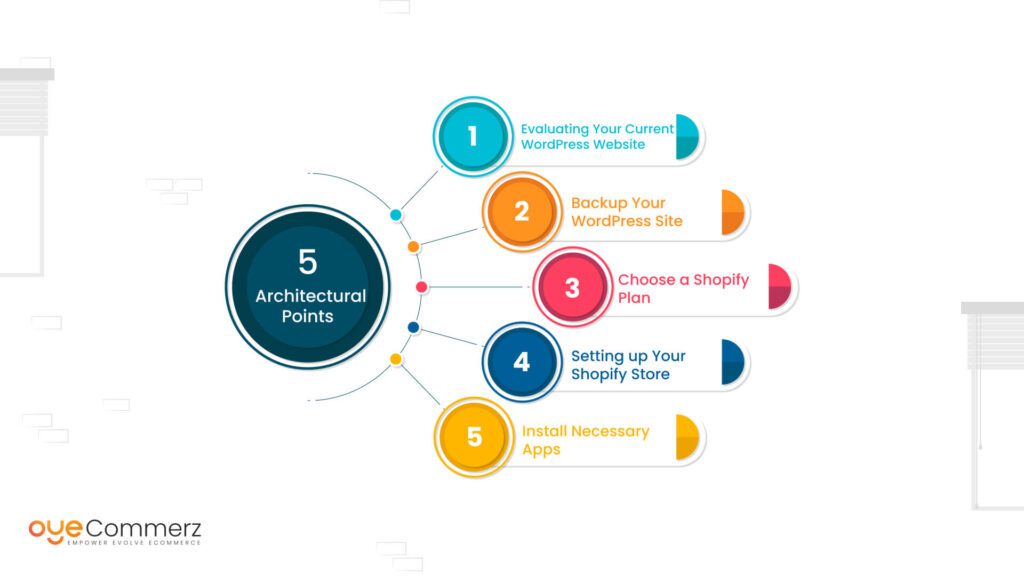In the constantly changing sphere of digital commerce, selecting the right system is crucial for your brand’s growth. If you’re at the moment using WordPress and considering a migration to an alternative, you’re not the only one. Many businesses are making this transition to utilize Shopify’s comprehensive tools, user-friendliness, and growth potential. This guide will guide you on the steps of migrating from WordPress to Shopify seamlessly, guaranteeing that you achieve your eCommerce potential.
Why Switch from WordPress to Shopify?
Ahead of diving into the migration procedure, it’s crucial to understand why this change can be helpful for your eCommerce business:
Accessible Tools: Shopify offers an user-friendly system that simplifies store operations, enabling for non-technical users.
Flexibility: As your business expands, Shopify can accommodate higher traffic and transactions without sacrificing efficiency.
All-in-One Solutions: Shopify comes with pre-installed resources for SEO, analytics, payment handling, and much more, minimizing the need for numerous plugins.
Enhanced Security: With Shopify, you utilize advanced security features that safeguard sensitive customer details.
Steps for a Effortless Migration
Migrating your online store from WP to Shopify requires several actions.
Here’s how to facilitate a successful transition:
Prepare Your Migration Approach
Begin by mapping out your migration plan. Decide on which elements of your current site you wish to transfer, such as:
Item details
Customer information
Purchase logs
Articles
Pick the Appropriate Migration Package
Based on your requirements, select a migration plan that fits your store. Professional services provides several plans:
Entry-Level Plan: Suitable for boutique stores with fewer products.
Mid-Tier Plan: Recommended for mid-range businesses with moderate requirements.
Comprehensive Solution: Best for big stores needing custom customization.
Secure Your Content
Before starting the migration, guarantee that you have a full copy of your WordPress site. This action is critical in case anything goes awry during the migration.
Retrieve Your Information from WordPress
Use tools or custom scripts to extract key information from your WordPress site:
Inventory
Users
Transactions
Blog posts
Upload Data into Shopify
After you have your information extracted, utilize Shopify’s built-in features or external apps to upload your information into your updated store. Confirm that all information is correctly structured and arranged.
Customize Your Shopify Site
Once importing data, tailor your Shopify platform’s Shopify plugin alternatives layout to match with your style. Look into hiring a developer if you require complex customization.
Establish Checkout Systems and Shipping Options
Configure transaction methods and logistics options in Shopify to ensure a user-friendly purchase experience for customers.
Implement SEO Standards
To preserve your online visibility during the change:
Use 301 link updates from existing URLs to migrated ones.
Revise metadata.
Optimize visual content and content for better ranking.
Test Your Updated Platform
Prior to publishing, thoroughly check your new platform. Identify any broken links, checkout failures, or missing data.
Go Live Your Store
When everything is in ready, it’s time to go live! Inform the transition to your clients and invite them to explore the updated offerings of your Shopify store.
Post-Migration Assistance
Following releasing your new store, continued assistance is essential. Explore engaging professionals who can assist with:
Site maintenance
Promotional campaigns
Improvement Shopify online presence boost strategies
Conclusion
Migrating from WP to Shopify can be a transformative step for your online retail. By following this guide and leveraging tools like those offered by industry leaders, you can guarantee a effortless transition that enhances your online presence. Adapt to the shift and unlock the full capabilities of Shopify today!

Comments on “Unlocking eCommerce Achievements: The Ultimate Guide to Effortless WP to eCommerce Migration”